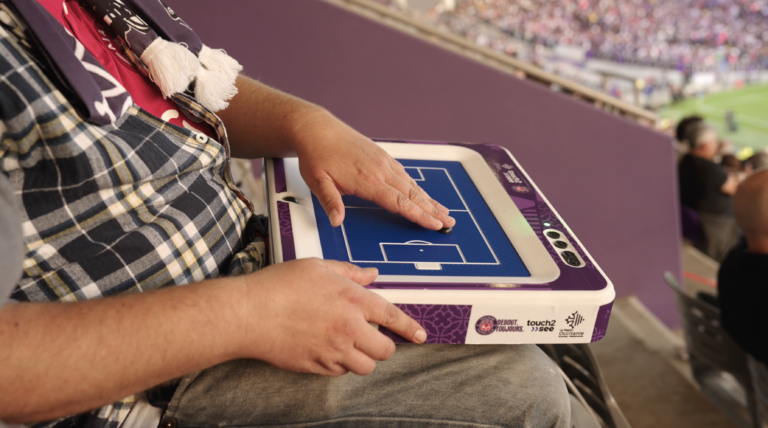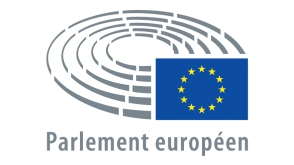
The city has taken a proactive and thoughtful approach to making life easier for people with disabilities, but also for anyone who might benefit from more accessible spaces – whether they are pushing a stroller, recovering from an injury, or simply visiting as a tourist.
One area where Toulouse stands out is in sports. It’s one of the only cities in Europe that offers live audio description for all major sporting events – football, rugby, handball and basketball. The service is free and available through an app, making it easier for people with visual impairments, and even for anyone who wants to follow the game more closely. Stadiums are also well-designed, with step-free access, accessible seating, trained staff, and discounted or free tickets for people with disabilities and their companions.
Beyond the stadiums, the city has made real improvements to public spaces and transportation, Sidewalks have been widened to allow more space for wheelchairs and strollers, and green areas include shade, water fountains, and sensory features to make them more comfortable and inclusive. Public transport – including metro, tram, bus and even cable car – is fully accessible, with step-free entrances, audio and visual announcements, and priority seating, The city also runs Mobibus, a door-to-door servicefor people with reduced mobility, and offers adapted bicycles, including some that allow wheelchair users to ride independently.
Toulouse isn’t only focused on mobility – it’s also creating accessible experiences in culture and tourism. The city holds a national “Destination for all” label, recognizing that its services and spaces are both accessible and enjoyable for everyone. For example, the Cité de l’Espace (a space exploration museum) is fully adapted for visitors with all kinds of impairments, offering braille and large-print guides, sign language support, and trained staff to assist anyone who needs help.
To highlight accessible events, the city created the “City For All” label. More than 200 events each year now carry this label, ranging from conferences with sign language interpreters to music festivals with vibrating vests and special viewing platforms for disabled attendees.
What makes Toulouse’s approach stand out is that it’s participatory. The city works closely with associations and individuals with disabilities, asking for feedback and testing new solutions with real users. They don’t design for one group – they involve everyone, aiming to create solutions that work for the greatest number of people City staff like Maxime Arcal, who leads accessibility efforts, emphasize that inclusion isn’t about one-size-fits-all solutions – it’s about listening, adapting, and constantly improving
Toulouse has also invested heavily in these efforts. A long-term plan to make 600 public buildings accessible is nearly complete, with 550 already adapted and the remaining scheduled for the coming year. In total, the city has invested around €50 million in accessibiloity improvements.
What’s clear is that Toulouse isn’t treating accessibility as an afterthought or just a legal requirement – it’s woven into how city functions. From transportation to culture, and from sports to daily services, Toulouse is showing what’s possible when inclusion is placed at the center of urban life.
More Information

